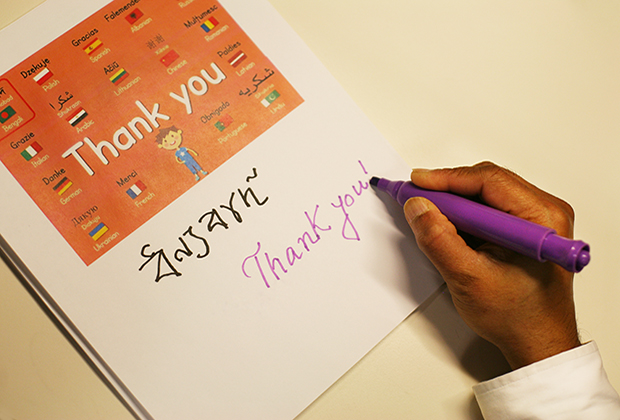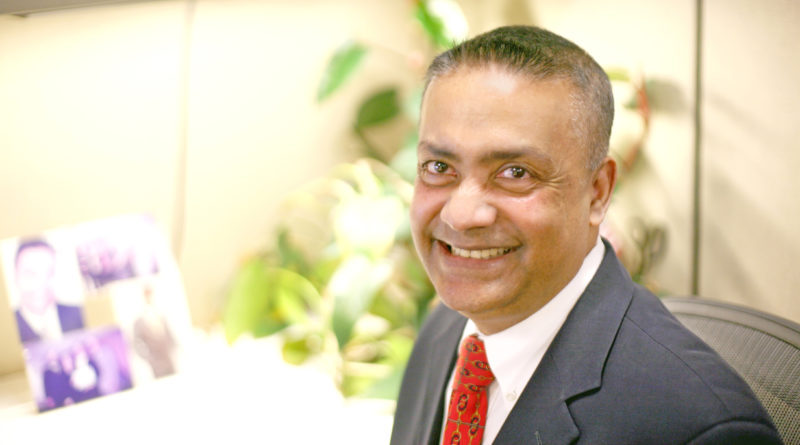The Power of Words
New York is home to about 115,000 speakers of Bengali, the sixth most spoken language in the city. As a volunteer with NYCHA’s Language bank, Avik Das, a management auditor at the Authority, helps Bengali speakers who have limited English proficiency get access to the public housing and Section 8 programs, driven by his conviction that “English is essential for accessing government services.”
After emigrating to New York from Kolkata, India, Mr. Das started working at NYCHA in 1995 as a housing assistant. In that role, he helped city residents apply for public housing, some of whom had limited English proficiency. “They could not communicate even their most basic needs, because no one there spoke their language,” he said. He decided to help by volunteering as an interpreter for the Language Bank.
For several decades, NYCHA’s Language Bank has provided people with limited English proficiency meaningful access to the Authority’s programs and services. It is composed of 140 employee-volunteers who work throughout NYCHA and collectively speak 34 languages. It’s a resource that the Department of Communication’s Language Services Unit relies on regularly to extend the reach of its six staff who interpret in the three non-English languages most commonly spoken by residents: Spanish, Russian, and both major dialects of Chinese (Mandarin and Cantonese). “Mr. Das, and other Language Bank volunteers, help remove the barriers between the work we do and the residents we serve,” said Millie Molina, Senior Manager for Events & Communications Services, who oversees the Language Bank.
Mr. Das continued to volunteer with the Language bank after he became certified in public accounting and fraud examination and advanced to the position of management auditor in NYCHA’s Department of Internal Audit & Assessment. The new job requires regular visits to developments and business units to ensure compliance with internal controls and financial reporting requirements. As a Language Bank interpreter, he still interacts directly with residents and applicants: “I’m there to ensure that people understand each other, that applicants understand the questions, and that the agency understands the answers.”
“There are some gray areas between a source language and the target language where the exact word-to-word interpretation is impossible,” Mr. Das adds. “Sometimes people communicate with visual gestures, so it’s best for an interpreter to be there in person.” When that’s not possible, he interprets by phone and listens to tone and pitch. He also translates text documents, including vital documents, notices for resident association meetings and job fairs, and signs posted at developments such as “Welcome to NYCHA.”
To join NYCHA’s Language Bank, full-time employees can complete and submit the “Language Bank Volunteer Application” form in Movaris.








